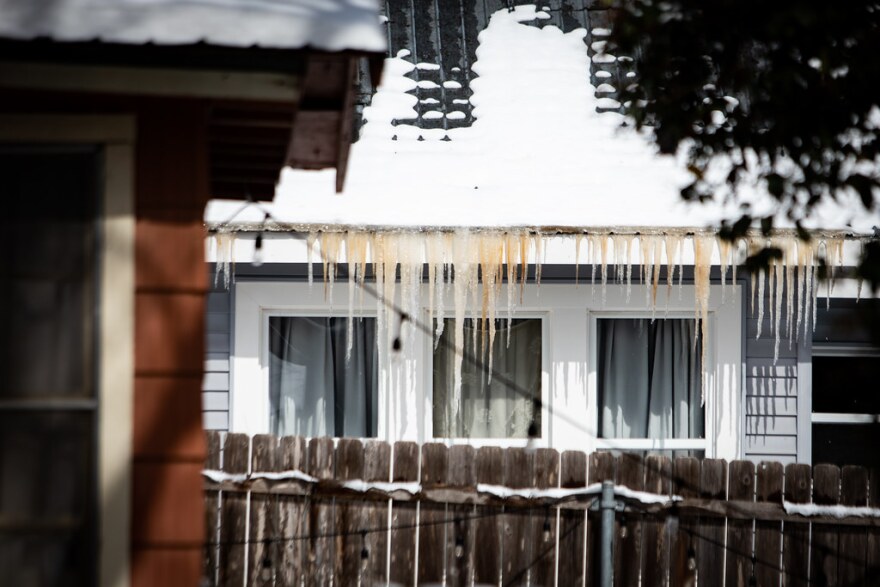In the days following February's deadly Texas blackouts one thing became clear: A big reason people lost power is because natural gas was not getting to power plants.
Equipment essential to the production, processing and transport of gas failed in the freeze, leaving power plants starved for fuel and the state starved of power.
But you wouldn't know it by listening to many state lawmakers. And as the Legislature hits key deadlines to pass out bills, it remains unclear if Texas will ensure gas infrastructure is weatherized to withstand the next big freeze.
“I think it would be kind to say we’re hesitant to do anything about it,” House Rep. Jon Rosenthal, D-Houston, told KUT. “We seem to be unwilling.”
Outside of the Legislature, Rosenthal is a mechanical engineer who works in the sub-sea natural gas industry. It’s a background he has used to raise the alarm about the risk posed to the grid by freezing natural gas infrastructure.
Three of the biggest blackouts in Texas history, he points out, happened after equipment used to produce, process and transport gas failed in the cold. That failure stopped gas from getting to power plants.
Despite those facts, the natural gas industry has not only fought state weatherization mandates, but it has also suggested Texas' infrastructure was not seriously impacted by February’s sub-freezing temperatures.
Instead, in testimony before lawmakers and in industry-sponsored reports, the natural gas lobby has blamed power cuts in the oilfields for the massive drop in gas supply during the freeze. Such power cuts were significant, but much of the state's natural gas production was shut down before blackouts were enacted, meaning they could not have been the cause.
Oil and gas regulators at the Railroad Commission of Texas, in communication with industry, have also pushed back against weatherization efforts.
"I believe that my industry resolved the problem and didn't really create it," Railroad Commission Chair Christi Craddick told lawmakers in hearings after the blackouts.
"That simply is not true," Rosenthal said, adding that gas infrastructure did freeze. “People that say natural gas can't freeze apparently don't understand what happens when it's got some moisture in it.”
Industry Influence
At the start of the session, the state House appeared ready to tackle gas weatherization. When House Speaker Dade Phelan listed key blackout response bills, he said House Bill 14 would weatherize natural gas infrastructure.
But the bill changed after industry pushback. It now establishes a committee to find weak spots in the state’s energy system — something that was already done after previous blackouts.
Meanwhile, some electric utility insiders grumble publicly or on background about solutions that have not even received a hearing because they could threaten the natural gas industry's bottom line.
"When you don't have somebody in charge of the reliability of the system, then you don't have people providing information to policymakers on it."Doug Lewin, president of Stoic Energy
Policies to encourage power plants to keep emergency fuel on site would help increase grid reliability. But some say the idea has not received a fair hearing because it would cut into the profits gas suppliers make during times of scarcity.
Programs to increase energy efficiency would also help Texas when supply on the grid tightens, but it too could hurt the bottom line of both gas suppliers and electricity generators.
Many see lawmakers’ reluctance to regulate natural gas as yet another example of the industry lobby exerting its considerable influence. But, even if officials chose to increase regulation, some say they would be confronted with a dearth of information when it comes to natural gas supply.
That's because, while there are numerous state and national entities to ensure electric reliability, there are no comparable groups to oversee the gas industry.
"When you don't have somebody in charge of the reliability of the system, then you don't have people providing information to policymakers on it," Doug Lewin, president of the consulting firm Stoic Energy, said. “Nobody in the United States has the authority to create standards for reliability for gas. That is a huge hole in the system and absolutely needs to be addressed.”
Because of that void, regulators and lawmakers find themselves relying on industry self-reporting, which could be helpful, but could not be considered impartial.
One Last Shot
One bill remains in play that requires gas systems to be weatherized.
Senate Bill 3 has already been passed through the Senate. It gives authority to the Railroad Commission to create mandatory weatherization standards.
But even if the bill is passed, Rosenthal worries it may not be strict enough to get companies to comply. The way it's currently written, he says, could create penalties as low as $100 a day for noncompliance in some cases.
When it comes to weatherization “that’s no enough to cause corporate action,” he said.
At the time of this writing, SB 3 was still waiting for a vote out of a House committee. Its approval has been complicated by a provision within it that would slow the growth of Texas' renewable energy sector.
Got a tip? Email Mose Buchele at mbuchele@kut.org. Follow him on Twitter @mosebuchele.
If you found the reporting above valuable, please consider making a donation to support it. Your gift pays for everything you find on KUT.org. Thanks for donating today.













